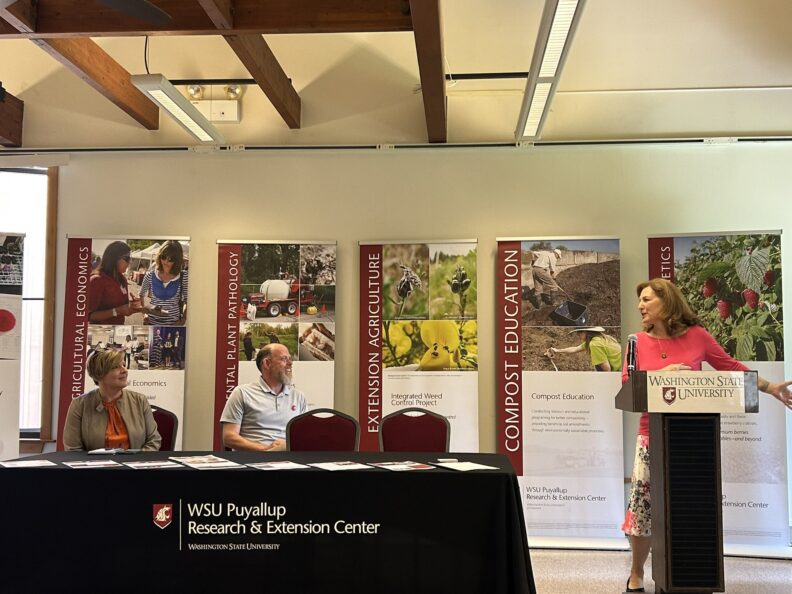
U.S. Rep. Kim Schrier, M.D. (D-WA-8) returned to WSU’s Puyallup Research and Extension Center to promote agricultural research legislation and tour ongoing studies at the center.
The Congresswoman recently co-introduced the AG RESEARCH Act in the House to bolster federal investment and noted that infrastructure is a critical component.
“If we want to recruit world class researchers, we need to be able to provide world class research facilities,” she said in brief remarks in the Allmendinger Center. 
WSU Puyallup is the university’s oldest research unit off the flagship Pullman campus, having opened in 1894, and is home to vital research and education activities pertaining to small farms, low impact development, soils, plant pathology and other priorities. Like many other units operated statewide by the College of Agricultural, Human and Natural Resource Sciences, it is home to a vast array of deferred maintenance needs. The college —with research stations and units in places such as Davenport, Prosser, Wenatchee, Mount Vernon, Long Beach, and Othello —has a deferred maintenance backlog of $830 million, almost half of WSU’s systemwide backlog of $1.8 billion.
“It’s an overwhelming number,” Schrier said.
Kristi Scholz-O’Leary, past president of the Pacific Northwest Christmas Tree Association, said WSU research is required to stay on top of new diseases and other ever evolving challenges to keep the state’s agricultural economy competitive.
“The research done at WSU not only benefits people like me in agriculture, but it affects everyone nationally and internationally,” she said.

A tour led by station Director Todd Murray highlighted efforts to better understand diseases afflicting Christmas trees and other trees. Understanding, for instance, whether they thrive in warmer or cooler climates or in wetter or drier conditions can help inform efforts to defeat them.
Rep. Schrier also heard about berry breeding efforts in Puyallup, which have helped make Washington produce an astonishingly large share of the national production of raspberries and blueberries. The raspberry breeding program is one of only three in the country.
Other stops on the tour included a look at WSU’s research on composting and work to promote the health of small farms.